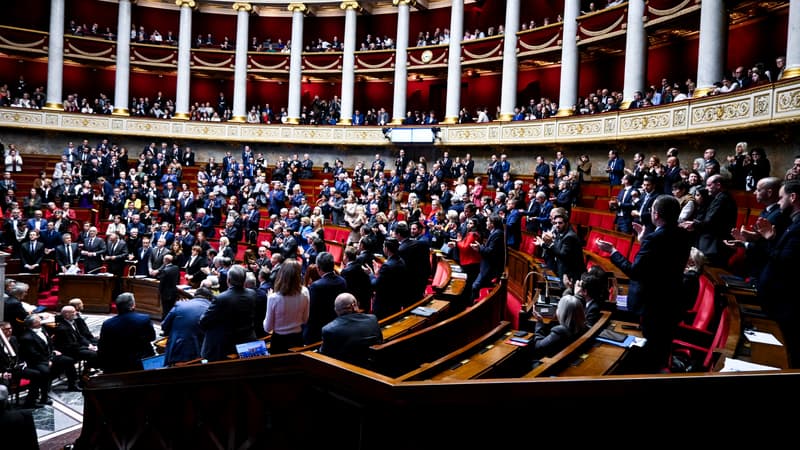In the midst of a confrontation over taxes on the great wealth, with the review of the Zucman tax scheduled for the end of the week, deputies agreed on Tuesday to tax large technology companies more. While the government plays for its survival by trying to reach agreements with the PS, the issue of tax justice continues to permeate budget debates.
In the evening, deputies voted in favor of doubling the rate of the Gafam tax, which affects large technology companies, from 3 to 6%, despite opposition from the government concerned about possible retaliation from the Trump administration. Widely approved with 296 votes in favor, compared to 58, the vote did not, however, alleviate tensions in the chamber.
And rightly so, in committee, the Macronist elected officials had initially proposed quintupling the tax introduced in 2019 by Bruno Le Maire with an estimated gain of several billion euros. But during the session they finally changed their mind and supported a 6% rate (instead of 15%). The reason? The risk of “reopening a trade war between France and the United States,” said deputy Jean-René Cazeneuve (Renaissance).
“Be careful”
Economy Minister Roland Lescure called on parliamentarians to exercise restraint: “If we introduce a disproportionate tax, we will have disproportionate retaliation.” “Be careful, I beg you,” the minister even implored. In the process, Republicans announced that they would not vote on any of the proposals, to preserve the agricultural, wine and spirits sectors, the first to be affected in case of retaliation.
This turn provoked the indignation of left-wing and far-right deputies, who denounced a withdrawal in the face of American pressure. At the beginning of the afternoon, the same alliance of the left and RN had allowed voting in favor of a “universal tax” on multinationals. This measure, which aims to tax the profits of multinationals in proportion to their activity carried out in France and fight against tax evasion and optimization, could contribute 26 billion euros to the state budget, according to its defenders.
But for Minister Roland Lescure, it would be “20 billion more problems” for France, which recalls that it is a signatory of more than 125 tax agreements with 125 countries. “You can be proud of yourself, Mrs Le Pen,” he told the leader of far-right MPs, expressing surprise at the vote on measures that amount to “shooting French companies in the foot.” “When tax fraud is not combated, it is the VPEs and French SMEs that pay for it,” responded RN deputy Jean-Philippe Tanguy.
“It is no longer an object”
The tax justice measures that are at the center of the confrontation between the government and the socialists should continue to fuel the debate in the coming days. The Zucman tax will likely be considered Friday. The Government insisted on Tuesday in its opposition to the measure, even in its “lighter” version proposed by the socialists.
The tax proposed by economist Gabriel Zucman provides for a minimum tax of 2% on assets over 100 million euros. Faced with criticism, particularly regarding the inclusion of professional instruments in this tax, the PS proposed an alternative: a minimum tax of 3% on 10 million euros of assets, but excluding innovative and family businesses. According to the PS, this version would contribute between five and seven billion euros, that is, half less than what it expected from the Zucman tax.
The first secretary of the PS, Olivier Faure, once again threatened the executive with censure if it did not change. But on condition of anonymity, a socialist executive admits that the Zucman tax, like its so-called “light” version, “is not going to be approved.” However, he says he believes in a “compromise amendment.” “We can imagine an amendment in which we have a tax on financial wealth that is differential, with a certain number of exclusions on professional assets, but to compensate for these exclusions we hit the holding companies,” he says.
Close to AFP, a Macronist executive affirms that the revised Zucman tax is “no longer an object in the negotiations”, since the PS has “well in mind that it will not be approved.”
Source: BFM TV


